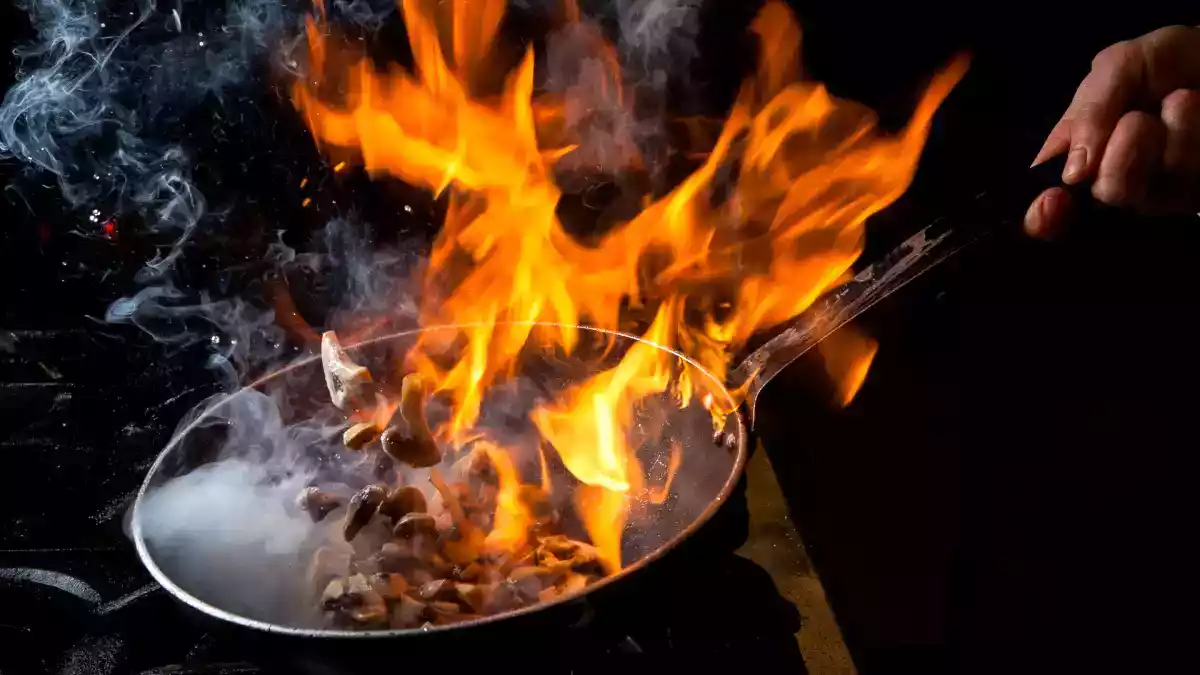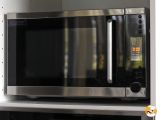Don't make this dangerous mistake when extinguishing a grease fire

A few seconds are enough. That's all it takes. An oversight, the oil starts to smoke in the pan, a little flicker... and suddenly, fire.
This may sound familiar: Karen was preparing dinner when suddenly the phone rang. She answered the call, momentarily neglecting what she was doing. The oil in the pan began to smoke. Within seconds, flames engulfed the kitchen.
Situations like Karen's are more common than we think. According to the National Fire Protection Association (NFPA), cooking is the leading cause of home fires in the United States. In 2021, cooking fires caused an estimated $1.15 billion in property damage. Knowing how to prevent and act in the event of a kitchen fire can make the difference between a scare and a tragedy.
The worst mistake you could make
The first thing many try to do is to pour water. An automatic reflex. But with fat on fire, water is like gasoline. It sinks under the oil, turns to steam instantly and, as it expands, throws a fireball out of the pan. Never use water to put out a grease fire; this can cause an explosion and spread the flames.
The second mistake is to try to move the pan. Flames climb up the handle, oil spills out and, in a matter of seconds, the fire is no longer just on the stove: it's on the counter, on the floor, on your clothes.
The safe and effective solution
The answer is simpler than it sounds: slide a metal lid over the pan. If you don't have a lid handy, use a metal baking pan. Without oxygen, the fire dies. Turn off the heat and wait at least ten minutes before removing the lid. When you do, move it away from your face to avoid heat shock or possible residual flames.
Fire extinguisher? Yes, but not just any fire extinguisher. It must be a class K extinguisher, specifically designed for fats and oils. Use it according to the instructions.
If the fire has escaped from the pan, if it has spread, if it is climbing through cabinets or if you can't control it, evacuate immediately. Close the doors on your way out to contain the flames and call 911 or your country emergency number.
Prevention: the key to avoiding misfortunes
Never leave the kitchen unattended. If you need to get away, turn off the stove.
Avoid distractions such as cell phones. A moment of carelessness can be enough to start a fire.
Always keep flammable substances away from heat sources.
Place the handle of the pans and the ladles always towards inside.
Install smoke detectors. They are essential to alert you in time in case of fire.
Keep the extractor hood clean. Grease build-up can be a fuel for fire. Clean filters and surfaces regularly.
What you should never do
- Never use water to put out grease fires. The National Fire Protection Association (NFPA) specifically warns against this practice.
- Do not attempt to move the burning container.
- Do not use inappropriate materials to smother the fire. Although the use of salt or baking soda has been suggested, these practices are not recommended by fire departments because of the amount needed to be effective and the difficulty of application. In addition, the use of flour or other powders can be dangerous and increase the risk of fire spread.
- Do not use wet cloths or towels. They could dry quickly and catch fire, making the situation worse.
You may also be interested in:
 Patricia González
Patricia González

Comments